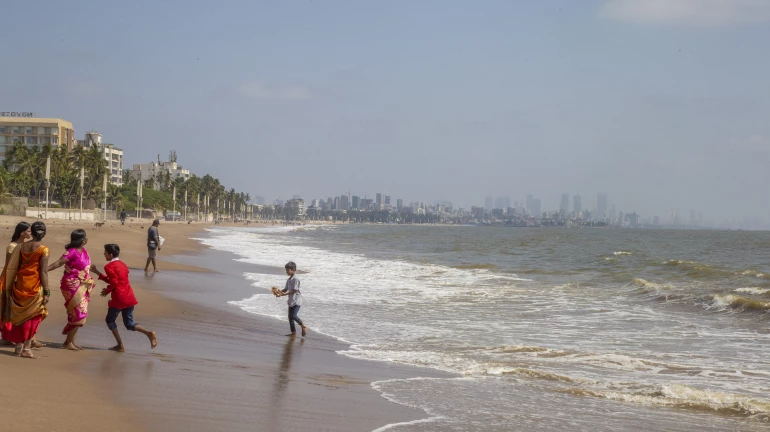
A noticeable increase in bluebottle jellyfish stings has sparked alarm among beachgoers at Juhu Beach this week. Reports indicate that at least six individuals, including three minors aged between six to ten years old, have fallen victim to the potent stings of these marine creatures, also commonly referred to as Portuguese man o' war. The incident has prompted renewed calls for public awareness and safety measures to mitigate potential risks.
Unpredictable Encounters on the Sandy Shore
Juhu Beach, known for its picturesque sandy shores, has recently witnessed a surge in bluebottle jellyfish sightings. The marine creatures, with their striking appearance against the backdrop of the beach, have been washing up on the shore with increasing frequency. In 2018, a notable influx of these creatures led to a staggering 150 incidents of stings reported along Mumbai's beaches. This trend has left both local authorities and beachgoers concerned about the potential hazards these jellyfish may pose.
Lack of Warning Signs Raises Concerns
Despite the recurrent nature of these encounters, Juhu Beach currently lacks informative signs or hoardings that could serve as a warning to beachgoers about the potential dangers posed by the bluebottle jellyfish. Unlike other popular beach destinations, such as Girgaum Chowpatty, where public information on dealing with jellyfish stings is readily available, Juhu Beach remains without adequate safety measures. This absence of visible warnings has raised questions about the need for improved communication to ensure the safety of visitors.
Symptoms and Nature of the Stings
The aftermath of bluebottle jellyfish stings can lead to a range of distressing symptoms, including skin redness, swelling, itching, blisters, and intense bodily discomfort. As indicated by medical experts, the venomous nature of the jellyfish's stingers can trigger severe reactions in those who come into contact with them. Such encounters further emphasize the importance of caution and prompt medical attention in the event of a sting.
Calls for Enhanced Safety Measures
The recent surge in bluebottle jellyfish stings at Juhu Beach has reignited discussions about the need for improved safety measures and public awareness campaigns. As beach enthusiasts continue to flock to the sandy shores, it becomes increasingly imperative for authorities to prioritize the installation of warning signs and educational materials to ensure the safety and well-being of all visitors. The absence of such measures not only puts beachgoers at risk but also underscores the importance of proactive steps to prevent future incidents.





